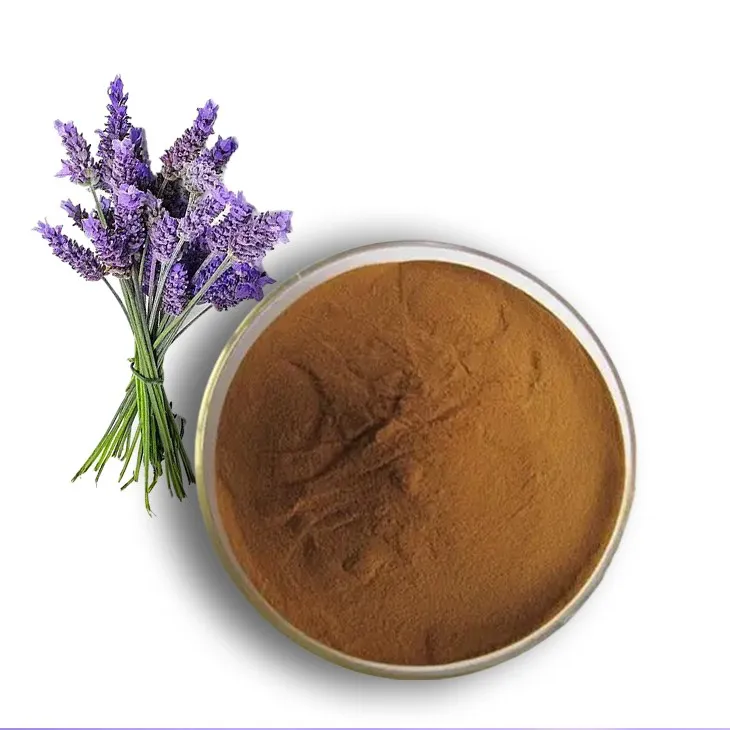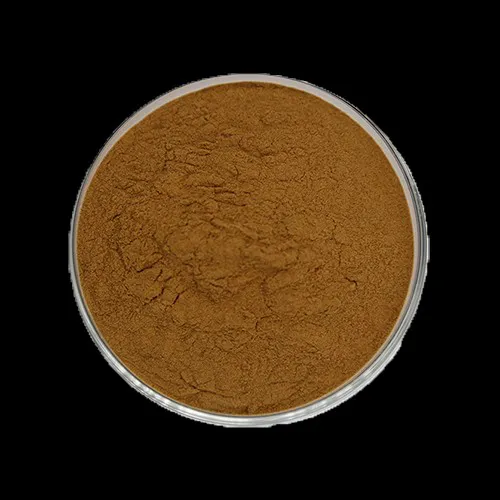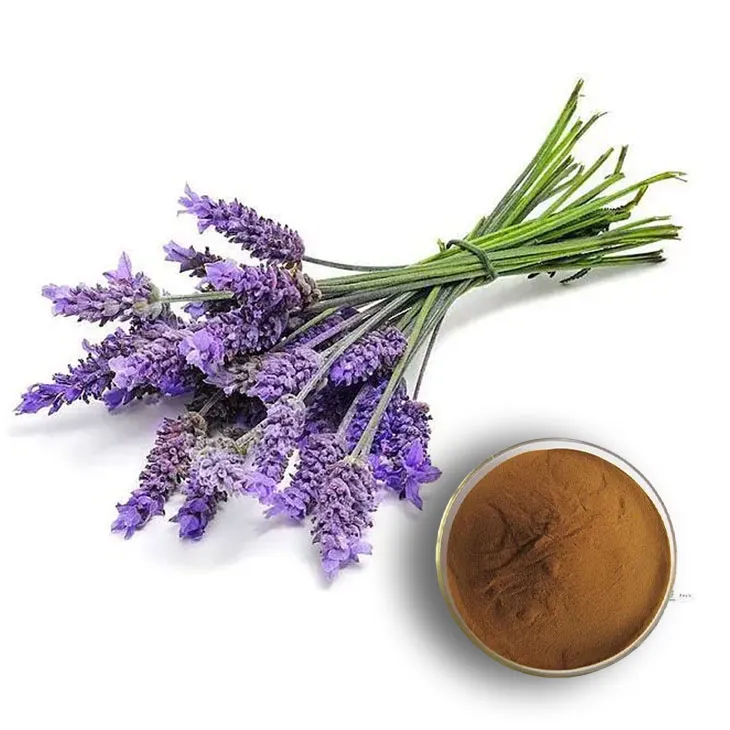- 0086-571-85302990
- sales@greenskybio.com
Lavender extract: A herbal medicine for treating anxiety and insomnia.
2024-11-11

1. Introduction
Anxiety and insomnia are two common health issues that affect a significant portion of the global population. Lavender Extract has emerged as a potential natural remedy for these problems. This herb has been used for centuries in various cultures around the world, and modern research is starting to uncover the scientific basis behind its therapeutic effects.

2. Historical Use of Lavender for Anxiety and Insomnia
2.1 Ancient Mediterranean Region
In the ancient Mediterranean region, lavender was highly regarded. It was often used in baths and as a part of bedding to promote relaxation and restful sleep. The Greeks and Romans were among the first to document the use of lavender for its calming properties. They believed that lavender could soothe the nerves and help with various emotional disturbances.
2.2 Traditional Chinese Medicine
Although lavender is not native to China, it has been introduced and incorporated into traditional Chinese medicine in recent times. Chinese herbalists have recognized its potential in treating restlessness and insomnia, often using it in combination with other herbs to enhance its effects.
2.3 Middle Eastern Cultures
Middle Eastern cultures have a long - standing tradition of using lavender. It was used in perfumes and oils, not only for its pleasant scent but also for its reputed ability to relieve anxiety. Women in these cultures would often use lavender - scented products during times of stress or to help them sleep better at night.

3. Modern Scientific Research on Lavender Extract
3.1 Efficacy Studies
Several scientific studies have been conducted to evaluate the efficacy of Lavender Extract in treating anxiety and insomnia. In randomized controlled trials, participants who were exposed to lavender either through inhalation or oral supplementation showed significant improvements in their anxiety levels. For insomnia, lavender has been shown to reduce the time it takes to fall asleep and improve the overall quality of sleep.
3.2 Mechanisms of Action
The chemical composition of lavender extract plays a crucial role in its effects on the body. Lavender contains linalool and linalyl acetate, which are two of the main active components. These compounds are thought to interact with the brain's neurotransmitter systems, particularly the GABA (gamma - aminobutyric acid) system. GABA is an inhibitory neurotransmitter that helps to calm the nervous system. By enhancing GABA activity, lavender extract may reduce anxiety and promote sleep.

4. Chemical Composition of Lavender Extract and Its Impact on the Brain
4.1 Linalool
Linalool is a terpene alcohol found in lavender. It has been shown to have sedative and anxiolytic properties. In animal studies, linalool has been found to decrease locomotor activity, which is an indication of its calming effect. In the brain, linalool may act on specific receptors to modulate neuronal excitability, ultimately leading to a reduction in anxiety.
4.2 Linalyl Acetate
Linalyl acetate is another important component of lavender extract. It has a pleasant floral scent and also contributes to the herb's therapeutic effects. Research suggests that linalyl acetate may work in concert with linalool to enhance the overall anxiolytic and sedative effects. It may also have anti - inflammatory properties in the brain, which could be beneficial for conditions related to anxiety and sleep disorders.
5. Tips on Incorporating Lavender Extract into Daily Life
5.1 Aromatherapy
- One of the most popular ways to use lavender extract is through aromatherapy. You can use a lavender - scented essential oil in a diffuser. Place the diffuser in your bedroom or living room, and let the gentle scent of lavender fill the air. This can create a relaxing atmosphere and help reduce anxiety and promote sleep.
- Another option is to use lavender - scented candles. However, make sure to choose candles made from natural ingredients to avoid inhaling harmful chemicals.
5.2 Bath Products
- Adding lavender extract to bath products is a great way to enjoy its benefits. You can find lavender - scented bath salts, bath bombs, or bubble baths. Soaking in a lavender - infused bath can help relax your muscles and soothe your mind.
- When using these products, make sure to follow the instructions on the package to ensure the proper concentration of lavender extract.
5.3 Dietary Supplements
- Lavender extract is also available as a dietary supplement in the form of capsules or tablets. If you choose to take it as a supplement, it is important to consult with a healthcare provider first, as they can advise you on the appropriate dosage and any potential interactions with other medications you may be taking.
- Look for high - quality supplements that are standardized to contain a certain amount of active ingredients, such as linalool and linalyl acetate.
6. Quality Control and Standardization of Lavender Extract
6.1 Importance of Quality Control
The quality of lavender extract can vary widely depending on factors such as the source of the lavender, the extraction method, and the manufacturing process. Poor - quality lavender extract may not be effective in treating anxiety and insomnia, and in some cases, it may even be harmful. Therefore, it is crucial to ensure that the lavender extract you use is of high quality.
6.2 Standardization of Active Ingredients
- Standardization of the active ingredients in lavender extract, such as linalool and linalyl acetate, is essential. This ensures that each batch of the extract contains a consistent amount of these components, which is important for reliable therapeutic effects.
- Look for products that are labeled with the percentage of active ingredients or that follow a recognized standard for lavender extract quality.
6.3 Third - Party Testing
- Products that have undergone third - party testing are generally more reliable. Third - party laboratories can test for the purity, potency, and safety of lavender extract. This gives consumers an added level of confidence in the product they are using.
- Some well - known third - party testing organizations include NSF International and ConsumerLab.
7. Conclusion
Lavender extract is a promising herbal medicine for treating anxiety and insomnia. Its long history of use in different cultures, combined with modern scientific research, supports its efficacy. By understanding its chemical composition and how it affects the brain, we can better appreciate its therapeutic potential. Incorporating lavender extract into daily life through various methods such as aromatherapy, bath products, or dietary supplements can be a natural and effective way to manage anxiety and improve sleep. However, it is important to pay attention to quality control and standardization to ensure safe and effective use.
FAQ:
How has lavender been historically used to treat anxiety and insomnia?
Lavender has a long history of use in various regions. In ancient times, it was often used in herbal remedies. For example, in Mediterranean regions, people would place dried lavender near their beds to promote relaxation and better sleep. In some Asian cultures, lavender-infused oils were used for massage to relieve stress and anxiety. Its pleasant aroma was believed to have a calming effect on the mind and body, which in turn helped with anxiety and insomnia.
What does modern scientific research say about the efficacy of lavender extract in treating anxiety and insomnia?
Modern scientific research has provided evidence supporting the efficacy of lavender extract. Studies have shown that certain compounds in lavender can interact with the body's neurotransmitters. For instance, it may affect GABA (gamma - aminobutyric acid) receptors in the brain. GABA is an inhibitory neurotransmitter that helps to reduce neuronal excitability. By influencing GABA receptors, lavender extract can have a calming effect, which is beneficial for reducing anxiety. In terms of insomnia, research suggests that it can help regulate the body's circadian rhythm and promote a more relaxed state conducive to sleep.
What are the main chemical components in lavender extract that are relevant to treating anxiety and insomnia?
The main chemical components in lavender extract relevant to treating anxiety and insomnia include linalool and linalyl acetate. Linalool has been shown to have sedative and anxiolytic properties. It can cross the blood - brain barrier and interact with the central nervous system. Linalyl acetate also contributes to the overall calming effect. These components work together to modulate the brain's chemistry related to mood and sleep.
What are some practical ways to incorporate lavender extract into daily life for treating anxiety and insomnia?
There are several ways to incorporate lavender extract into daily life. One common method is aromatherapy. You can use a lavender essential oil diffuser in your bedroom or living room to create a calming atmosphere. Adding lavender extract to bath products like bath salts or bubble bath can also be relaxing. Another option is to take lavender extract as a supplement, but it is important to consult a healthcare provider before doing so. Some people also like to use lavender - scented sachets in their pillowcases for a more restful sleep.
What are the concerns regarding quality control and standardization of lavender extract?
Quality control and standardization of lavender extract are important. One concern is the purity of the extract. There may be variations in the concentration of active components depending on the source and extraction methods. Adulteration is also a potential issue, where other substances may be added to the extract. To ensure safe and effective use, it is crucial to look for products that are tested by reliable third - party laboratories. Standardized manufacturing processes should be in place to ensure consistent quality, including proper cultivation, harvesting, and extraction techniques.
Related literature
- The Effects of Lavender on Anxiety and Sleep: A Review of the Current Evidence"
- "Lavender Extract: Chemical Composition and Therapeutic Applications in Anxiety and Insomnia"
- "Quality Control in Lavender Extract Production for Medicinal Purposes"
- ▶ Hesperidin
- ▶ citrus bioflavonoids
- ▶ plant extract
- ▶ lycopene
- ▶ Diosmin
- ▶ Grape seed extract
- ▶ Sea buckthorn Juice Powder
- ▶ Beetroot powder
- ▶ Hops Extract
- ▶ Artichoke Extract
- ▶ Reishi mushroom extract
- ▶ Astaxanthin
- ▶ Green Tea Extract
- ▶ Curcumin Extract
- ▶ Horse Chestnut Extract
- ▶ Other Problems
- ▶ Boswellia Serrata Extract
- ▶ Resveratrol Extract
- ▶ Marigold Extract
- ▶ Grape Leaf Extract
- ▶ blog3
- ▶ blog4
- ▶ blog5
-
Organic Tongkat Ali extract powder factory.
2024-11-11
-
How to make powder with ashwagandha extract.
2024-11-11
-
Rosehip extract manufacturers from China.
2024-11-11
-
The best cat's claw extract in nature.
2024-11-11
-
Chinese Dandelion Leaf Extract Suppliers.
2024-11-11
-
Curcuma Longa Extract
2024-11-11
-
Selenium yeast
2024-11-11
-
Peppermint Extract Powder
2024-11-11
-
Boswellia Serrata Extract
2024-11-11
-
Lemon Juice Powder
2024-11-11
-
Withania Somnifera Extract
2024-11-11
-
Lotus leaf extract
2024-11-11
-
Nutmeg Extract
2024-11-11
-
Golden Seal Extract
2024-11-11
-
Red Date Extract
2024-11-11





















